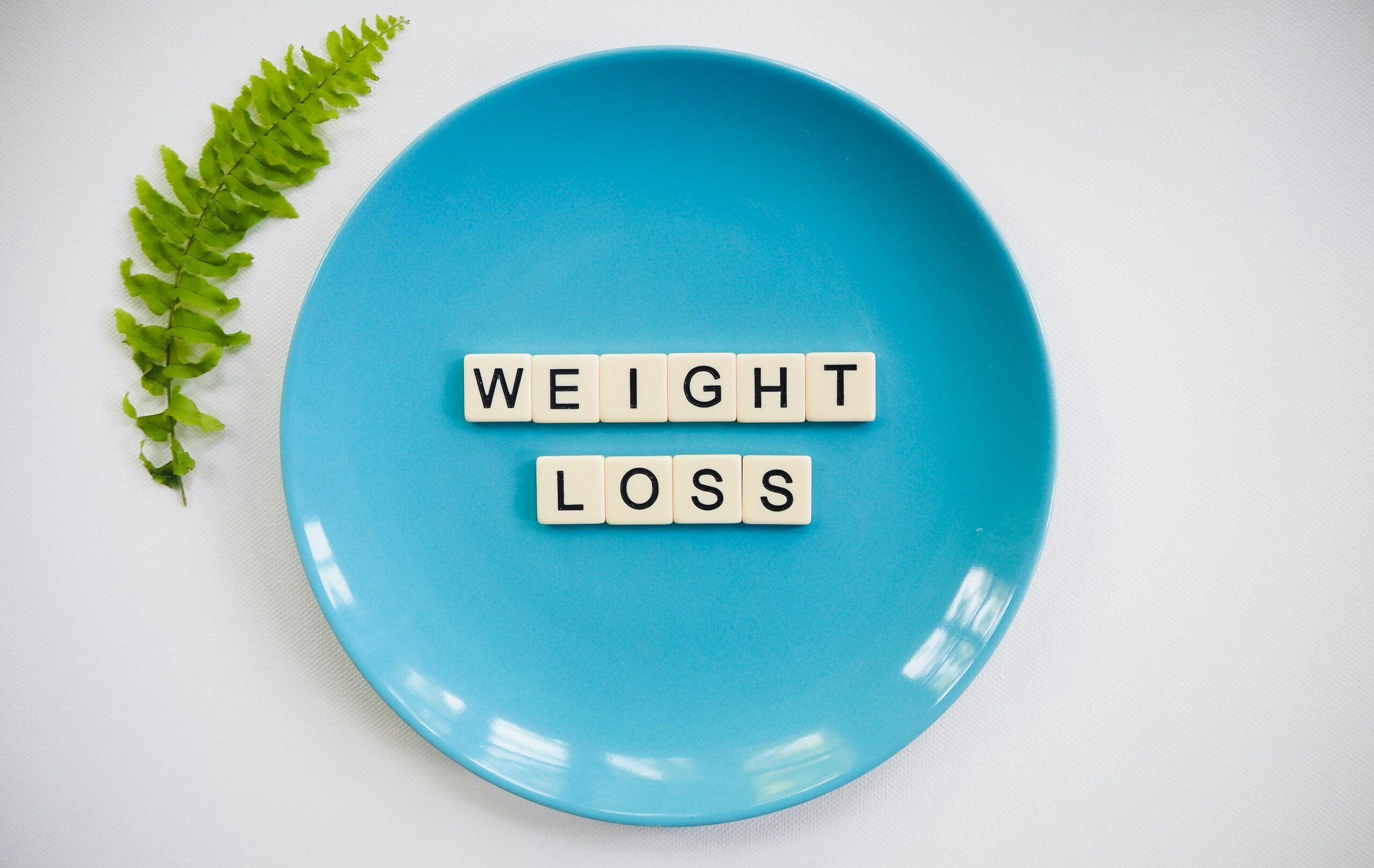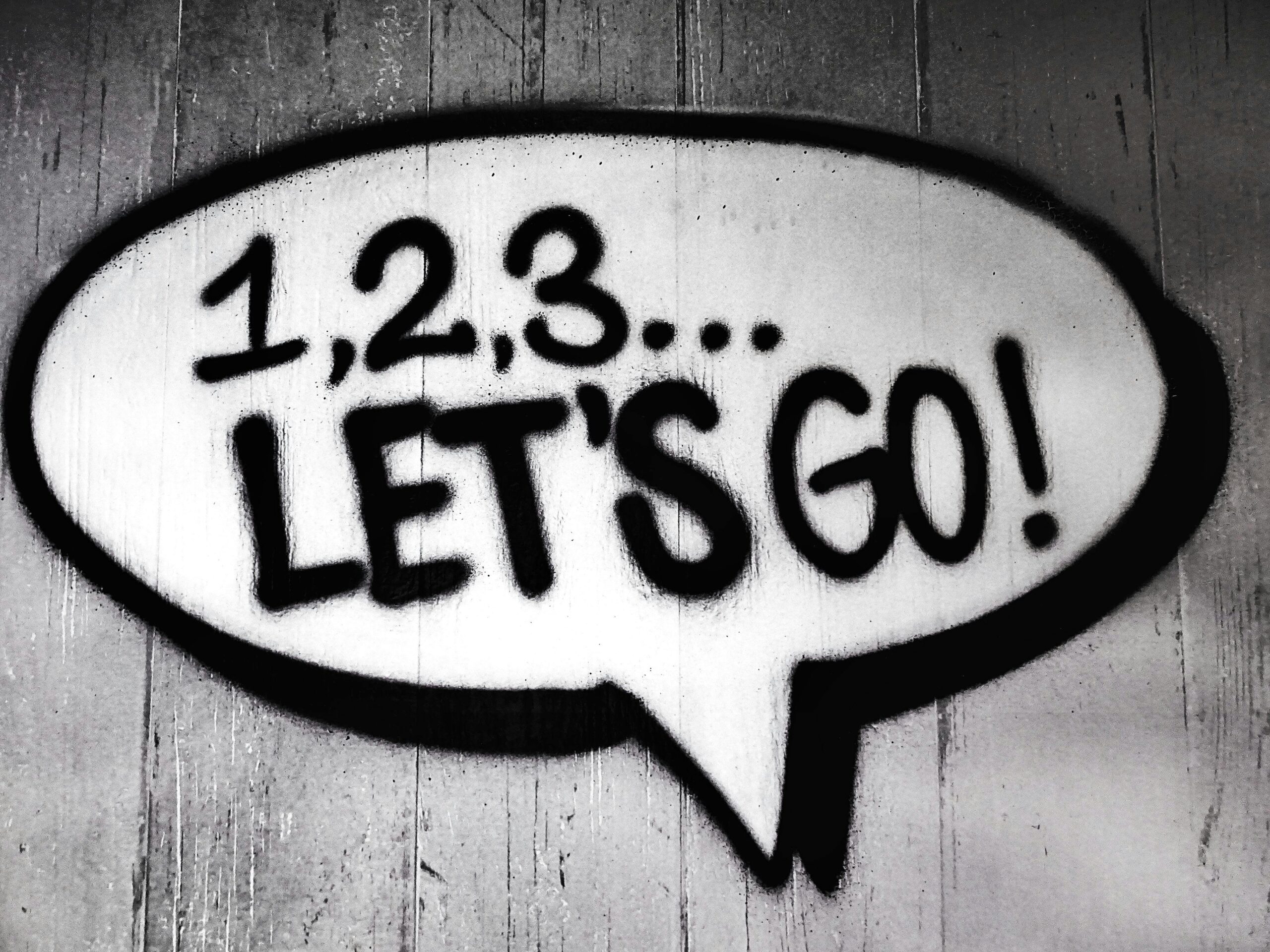Physical Address
304 North Cardinal St.
Dorchester Center, MA 02124
Physical Address
304 North Cardinal St.
Dorchester Center, MA 02124

Starting a weight loss journey can feel like an uphill battle. With so many diet plans, workout routines, and weight loss myths circulating, it’s hard to know where to begin. But here’s the thing: lasting weight loss isn’t about quick fixes or drastic changes—it’s about building a sustainable, healthy lifestyle that supports your well-being.
The first step in any weight loss journey is understanding that it’s not just about the number on the scale. It’s about feeling better in your body, gaining more energy, and making choices that support a long-term, healthy future. Whether your goal is to feel more confident, improve your health markers, or simply feel more energetic throughout the day, it all starts with the right mindset.
But where do you start? The answer lies in creating habits that are manageable and sustainable. You can’t expect to transform your body overnight, and trying to do so often leads to frustration and burnout. Instead, by focusing on gradual, lasting changes, you’re more likely to see real results that stick.
This article is designed to help you understand how to start weight loss the right way. We’ll cover how to set realistic goals, focus on healthy habits, and overcome the common obstacles that often derail even the most motivated individuals. By taking a step-by-step approach, you’ll build a strong foundation for success, and make weight loss a natural part of your everyday life.
Are you ready to get started? Let’s dive in.

Embarking on a weight loss journey without a clear plan is like trying to build a house on unstable ground. Without a solid foundation, it’s easy to lose momentum or become discouraged when challenges arise. Starting your journey the right way is crucial not only for reaching your goals but also for ensuring that those results are lasting.
It’s common to feel the urge to dive into drastic changes or quick-fix diets, but these approaches often lead to short-term results and eventual setbacks. The key to success lies in adopting a mindset and approach that focuses on gradual, sustainable progress. Instead of chasing instant results, think of your weight loss journey as a marathon, not a sprint. This shift in perspective will set you up for long-term success.
Here’s why starting right matters:
One of the biggest challenges people face when starting their weight loss journey is unrealistic expectations. It’s easy to fall into the trap of believing that rapid weight loss is the only measure of success. However, this mindset often leads to disappointment and frustration. The truth is, healthy weight loss should happen gradually, at a pace that’s manageable and sustainable.
By setting realistic goals—such as losing one to two pounds per week—you’ll avoid feeling overwhelmed and give your body the time it needs to adjust. Small, steady progress adds up over time, creating lasting change. Think about it: if you lose 1-2 pounds a week, that’s 4-8 pounds a month. In a year, you could be 50 pounds lighter, all without the stress of crash dieting or extreme measures.
Weight loss isn’t just about willpower. It’s about creating healthy habits that support your goals in the long term. When you rely on sheer willpower alone, you’re setting yourself up for burnout. Instead, focus on building habits—like meal prepping, incorporating daily movement, and prioritizing sleep—that become second nature.
These habits will not only help you lose weight but will also make it easier to maintain your weight in the future. When healthy habits are built into your routine, weight loss becomes less of a struggle and more of a lifestyle.
Many people fall into the trap of seeking perfection in their weight loss journey. This often leads to frustration when things don’t go according to plan. But the truth is, progress is far more important than perfection.
There will be days when you don’t eat as well as you hoped or miss a workout. That’s okay. These setbacks don’t define your journey; how you respond to them does. Embrace the idea that weight loss is a process—one that requires patience, consistency, and resilience. Celebrate small victories, whether it’s choosing a healthier snack or sticking to your workout routine for the week.
By shifting your focus to progress, not perfection, you’ll avoid the pressure that leads to burnout, and instead enjoy the journey toward lasting, sustainable weight loss.

Now that you understand the importance of starting right, it’s time to dive into the actionable steps that will set you on the path to success. These steps are designed to be simple, realistic, and sustainable, ensuring you can stick with them in the long term. By building healthy habits and staying consistent, you’ll create a solid foundation for your weight loss journey.
The first step in any weight loss journey is setting goals that are clear, achievable, and tailored to your unique circumstances. Instead of aiming for drastic changes, focus on creating SMART goals—Specific, Measurable, Achievable, Relevant, and Time-bound. This framework helps you break down big objectives into smaller, more manageable steps.
For example, rather than saying, “I want to lose 20 pounds,” set a goal like, “I will walk 5,000 steps every day for the next month.” This goal is specific, measurable, achievable, and provides a clear time frame. As you achieve these smaller goals, you’ll build momentum, feel more confident, and stay motivated to continue your weight loss journey.
Many weight loss plans emphasize cutting calories, but it’s equally important to focus on the quality of the food you’re eating. Prioritize nutrient-dense foods like vegetables, fruits, lean proteins, whole grains, and healthy fats. This will not only help you feel fuller for longer but will also provide your body with the fuel it needs to stay energized and healthy.
Try using the “half-plate rule” to guide your meals: fill half of your plate with vegetables, a quarter with lean protein, and a quarter with complex carbohydrates. This simple approach helps you maintain a balanced diet without feeling deprived. Remember, weight loss is about nourishing your body with the right foods, not starving yourself.
Exercise is an essential part of any weight loss journey, but it’s important to build a routine that works for you. Start small—if you’re new to exercising, begin with activities you enjoy, like walking, cycling, or dancing. The goal is to make movement a regular part of your life, rather than forcing yourself into intense workouts that are hard to maintain.
Consistency is key. Aim to incorporate at least 30 minutes of moderate activity most days of the week. As your fitness improves, you can gradually increase the intensity and duration of your workouts. Whether it’s strength training, yoga, or cardio, find what works for you and stick with it.
Sleep and stress have a significant impact on weight loss. Poor sleep and high stress levels can disrupt hormones that regulate hunger and metabolism, making it harder to lose weight. In fact, lack of sleep is often linked to increased cravings for unhealthy foods, while chronic stress can lead to emotional eating.
To support your weight loss goals, aim for 7-9 hours of quality sleep each night. Set a regular bedtime and create a calming nighttime routine. Incorporate stress-reducing practices into your daily life, such as mindfulness meditation, deep breathing exercises, or simply taking time to unwind and relax.
Hydration plays a crucial role in your weight loss journey. Drinking enough water helps boost metabolism, curb hunger, and support digestion. Make it a habit to drink at least 8 cups of water a day, and consider swapping sugary drinks for water or herbal tea. These small changes can add up over time and support your overall health.
Additionally, look for other small changes that will help you stay on track. For example, try meal prepping on the weekends to ensure you have healthy meals ready throughout the week. Take the stairs instead of the elevator or walk for a few extra minutes each day. These tiny habits may seem insignificant at first, but they can make a big difference in the long run.
By implementing these manageable steps, you’ll be well on your way to creating a balanced, sustainable routine that supports your weight loss journey. Remember, consistency and small wins are what matter most in the long run.
While there is plenty of advice out there about how to lose weight, many common weight loss articles miss some of the key factors that can make or break your success. If you truly want to achieve lasting weight loss, it’s important to look beyond the basics and address the elements that are often overlooked.
Your gut health plays a crucial role in your weight loss journey, yet it’s often ignored in typical weight loss discussions. The gut microbiome—the community of bacteria in your digestive system—can influence everything from digestion to how your body stores fat. In fact, an imbalance in gut bacteria has been linked to increased appetite and fat storage.
Incorporating fermented foods like yogurt, kefir, sauerkraut, and kimchi into your diet can support a healthy gut by introducing beneficial bacteria. You can also consider adding probiotic supplements if needed. Supporting gut health is just one of the small but important changes that can make your weight loss journey more effective.
Emotional eating is another often-overlooked aspect of weight loss. Many people turn to food when they’re stressed, anxious, or bored, even if they’re not physically hungry. This pattern can derail even the most well-intentioned weight loss efforts.
To address emotional eating, it’s crucial to develop coping mechanisms that don’t involve food. Try mindfulness techniques, like deep breathing or journaling, to help you become more aware of your emotions and how they influence your eating habits. Building a stronger connection between your emotions and your eating choices is key to breaking the cycle of emotional eating and making healthier decisions.
Weight loss is often portrayed as a battle of willpower. The conventional approach tells you to simply “try harder” or “push through” when temptations arise. However, this mindset is limiting and unsustainable in the long term.
Instead of relying on sheer willpower, focus on creating habits that align with your goals. Successful weight loss isn’t about resisting cravings—it’s about designing your environment and daily routine so that healthy choices become automatic. For example, meal prepping your lunches or scheduling workouts ahead of time makes these habits part of your lifestyle, so you don’t have to constantly rely on motivation to make the right decisions.
A shift in mindset is key: instead of thinking “I must fight my cravings,” think “I am building habits that help me feel better, both mentally and physically.” This approach is far more empowering and sustainable.
One of the biggest mistakes many people make is treating weight loss like a temporary fix. Extreme diets or rigid workout routines may yield quick results, but they’re often unsustainable and can lead to yo-yo dieting.
Instead, focus on making small, long-term changes to your lifestyle that you can maintain. This includes adopting healthy eating habits, finding enjoyable physical activities, and prioritizing mental well-being. When weight loss is approached as a natural part of a balanced lifestyle, rather than a strict, temporary goal, you’re more likely to keep the weight off and continue improving your overall health.
Taking the time to address these overlooked factors can dramatically improve your ability to lose weight sustainably. By focusing on holistic health—gut health, emotional eating, mindset, and long-term habits—you’re setting yourself up for success. This isn’t just about losing weight; it’s about creating a healthier, more balanced life.

Even with the best intentions, it’s common to encounter challenges during your weight loss journey. Life gets busy, progress can stall, and motivation may fluctuate. But the key to success is not avoiding these obstacles—it’s learning how to overcome them with a resilient mindset and practical strategies.
Here are some of the most common challenges people face and how to tackle them head-on.
One of the most common excuses for not exercising is a lack of time. Between work, family, and daily responsibilities, finding time to exercise can feel impossible. However, even with a packed schedule, there are simple ways to incorporate physical activity into your day.
Start by identifying small pockets of time for movement. For example, you can take a brisk walk during your lunch break, or use the time you spend watching TV to do bodyweight exercises like squats or push-ups. Even 10-15 minutes of exercise can make a difference when done consistently.
Additionally, try scheduling your workouts just like any other appointment. Put them in your calendar to hold yourself accountable. When exercise becomes a part of your routine, you’ll start to prioritize it and find ways to make it work, no matter how busy you are.
Many people experience a plateau after the initial weight loss phase, where the scale seems to stop moving, despite your continued efforts. This can be frustrating and discouraging, but it’s important to remember that plateaus are a natural part of the process. Your body is simply adjusting to the changes you’ve made.
If you find yourself stuck, consider reassessing your routine. This might mean slightly adjusting your diet, increasing the intensity of your workouts, or finding new activities to challenge your body. Sometimes, your body needs a change in stimulus to break through the plateau.
Also, be sure to track non-scale victories (NSVs), like improvements in energy, strength, or how your clothes fit. These can help you stay motivated and remind you that progress isn’t always reflected on the scale.
There will be times when you slip up or feel like giving up. It’s important to recognize that setbacks are part of the journey, not the end of it. The most successful weight loss stories are those where individuals keep going despite challenges.
When motivation wanes, remind yourself of your “why.” Why did you start this journey? Was it to feel healthier, have more energy, or fit into your favorite clothes? Reconnect with your deeper motivations, and use them to reignite your commitment.
Another helpful tip is to make small adjustments to your routine to avoid getting bored. Trying new workouts, cooking new healthy recipes, or joining a fitness class can bring fresh energy to your journey and help you stay engaged.
Social situations, like family gatherings or outings with friends, can be tricky when you’re trying to stick to your weight loss goals. It’s easy to feel pressured into eating foods that don’t align with your plan, or even feel guilty for not participating in food-centered events.
The key here is to prepare in advance. If you know you’re heading to a party or dinner, eat a healthy snack beforehand so you’re not overly hungry. Offer to bring a dish you enjoy that aligns with your goals. You don’t need to give up your social life, but it’s important to stay mindful of your choices.
And if you do indulge, don’t let one slip-up derail your progress. The journey is about balance, not perfection. One meal or snack doesn’t define your success—it’s about how you get back on track and keep moving forward.
Many people struggle with emotional eating—turning to food in response to stress, boredom, or negative emotions. Emotional eating can sabotage even the best efforts to lose weight, but it’s something you can learn to manage.
Start by identifying your triggers. What emotions or situations make you want to reach for food, even if you’re not hungry? Once you recognize these triggers, you can begin to address them more effectively. Try stress-reduction techniques like deep breathing, meditation, or journaling to cope with emotions instead of turning to food.
It may also help to practice mindful eating. Pay attention to how you feel before, during, and after eating. This mindfulness can help you become more in tune with your body’s true hunger cues and prevent overeating.
By developing strategies to overcome common challenges, you’ll be better equipped to stay on track and keep making progress toward your weight loss goals. Remember, the key to success isn’t avoiding obstacles—it’s learning how to navigate them with confidence and resilience.

One of the most common mistakes people make on their weight loss journey is focusing too much on the number on the scale. While it’s useful to track your weight from time to time, it’s only one of many indicators of success. To create a balanced and sustainable approach to weight loss, it’s essential to track your progress in a way that goes beyond the scale. This will help you stay motivated and see the full picture of your health and wellness journey.
Tracking your progress in different ways allows you to celebrate improvements that may not be immediately visible on the scale. Here are some other valuable metrics to keep an eye on:
While the scale might not always move as quickly as you’d like, there are plenty of other victories worth celebrating. These non-scale victories (NSVs) can keep you motivated and show you that your efforts are paying off in ways that don’t always show up in numbers.
Here are a few examples of NSVs to celebrate:
These victories might not be visible on the scale, but they are powerful indicators of the positive changes you’re making to your health.
Your journey won’t always be linear, and that’s okay. If you find that you’re no longer seeing progress, it might be time to adjust your approach. Consider tweaking your diet, increasing your activity levels, or simply trying something new to shake things up.
It’s important to remember that your weight loss journey is a marathon, not a sprint. Small adjustments along the way are perfectly normal and can help you stay motivated while continuing to move toward your goals. Always be patient with yourself, and remember that consistency is key.
Tracking your progress doesn’t have to feel like a chore. There are plenty of ways to make it enjoyable and motivating:
By tracking your progress in a holistic way, you’ll stay motivated and keep a positive perspective on your weight loss journey. Remember, it’s not just about the number on the scale—it’s about creating lasting, positive changes in your life that go beyond what you see on the outside.

While losing weight is often the main focus of many weight loss journeys, it’s important to understand that the ultimate goal should be to build a healthy, sustainable lifestyle. Weight loss is not just about looking different—it’s about feeling better, improving your overall health, and building habits that will last a lifetime.
When you prioritize health over the numbers on the scale, you begin to shift your focus from short-term fixes to long-term well-being. Let’s explore why weight loss should be seen as a byproduct of healthier habits rather than the primary goal.
Weight loss is often the result of healthier habits like eating nutrient-dense foods, exercising regularly, getting enough sleep, and managing stress. Rather than focusing solely on how much weight you can lose, shift your attention to the broader picture of improving your physical and mental health.
As you adopt healthier habits, you’ll start to notice improvements in your energy, mood, and even your relationships. These changes have a more profound impact on your life than any number on a scale ever could.
When health is the priority, weight loss becomes a natural side effect, rather than the end goal. By building habits that support your overall well-being, you’ll create a lifestyle that helps you thrive, both now and in the future.
Crash diets or extreme workout plans might give you quick results, but they’re often unsustainable in the long term. To create lasting change, it’s essential to focus on developing habits that you can maintain for life.
Start by incorporating small changes into your daily routine. This could be as simple as swapping out sugary drinks for water, taking a 10-minute walk after lunch, or setting a bedtime to ensure adequate sleep. These small but consistent actions will have a greater impact over time than trying to overhaul your entire lifestyle at once.
It’s also important to find activities and foods that you genuinely enjoy. Weight loss doesn’t have to mean depriving yourself of all your favorite foods—it’s about moderation and finding balance. Likewise, your exercise routine should include activities you love, whether that’s swimming, dancing, hiking, or yoga. When exercise feels enjoyable, you’re more likely to stick with it in the long run.
Building a healthy lifestyle goes beyond just physical health—it’s equally important to care for your mental and emotional well-being. Your mindset plays a significant role in your weight loss journey and overall health.
Incorporate practices like mindfulness, meditation, or journaling to manage stress and stay connected to your emotions. These practices can help you develop a healthier relationship with food and reduce the likelihood of emotional eating. Managing your stress levels can also support weight loss, as chronic stress can lead to hormonal imbalances that may hinder your progress.
Developing self-compassion is another essential aspect of building a healthy lifestyle. Be kind to yourself during setbacks and recognize that perfection isn’t the goal. What matters is showing up for yourself every day, learning from your experiences, and continuing to grow.
Building a healthy lifestyle is not a one-time effort; it’s a lifelong journey. It involves continuous growth, adapting to new challenges, and constantly refining your habits to better suit your evolving needs. Embrace the journey with patience and a long-term perspective.
Focus on maintaining a well-balanced diet, staying active, and practicing self-care regularly. Make health a priority, and the weight loss will follow as a natural outcome. When you create a foundation of sustainable habits, weight loss becomes just one of many positive changes in your life.
Remember, the bigger picture is about becoming the best version of yourself—physically, mentally, and emotionally. By building a healthy lifestyle, you’re setting yourself up for a life of wellness, happiness, and balance.
Starting a weight loss journey can be overwhelming, but remember that it’s a deeply personal experience—one that is unique to you. The path you take should reflect your individual needs, lifestyle, and goals. Embrace the journey, and let it empower you to build healthier habits that will last a lifetime.
It’s not about achieving perfection or following a set formula. It’s about progress, consistency, and the small, sustainable changes you make every day. By focusing on building a healthy lifestyle, you will naturally achieve lasting results—both on the scale and in your overall well-being.
The first step you’ve taken by reading this guide is a powerful one. You’ve already committed to starting your weight loss journey the right way, and that’s something to be proud of. Remember, every journey has its ups and downs, but what matters most is that you keep moving forward.
We would love to hear about your personal weight loss goals and the steps you’re taking to create a healthier life. Feel free to leave a comment below or share your experiences with us. Need more support? Explore other related articles on GoHealthyTime.com.
Your journey is yours to define, and the road ahead is full of possibilities. Keep moving forward with confidence and take each step one at a time. You’ve got this!
By embracing sustainable habits, as outlined in trusted resources like those from the Mayo Clinic, you’re setting yourself up for lasting success on your weight loss journey.